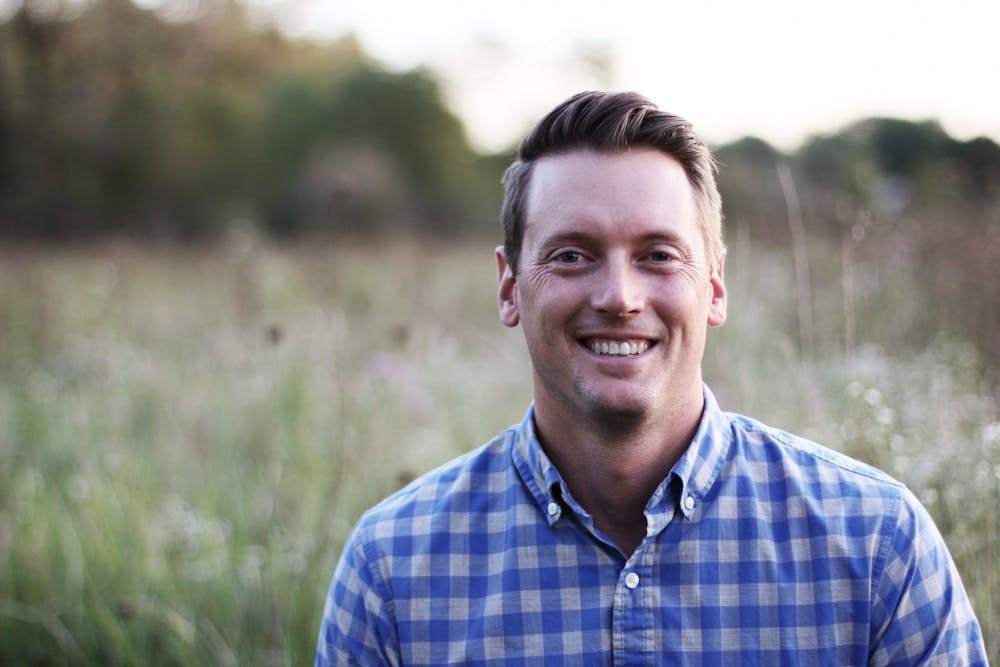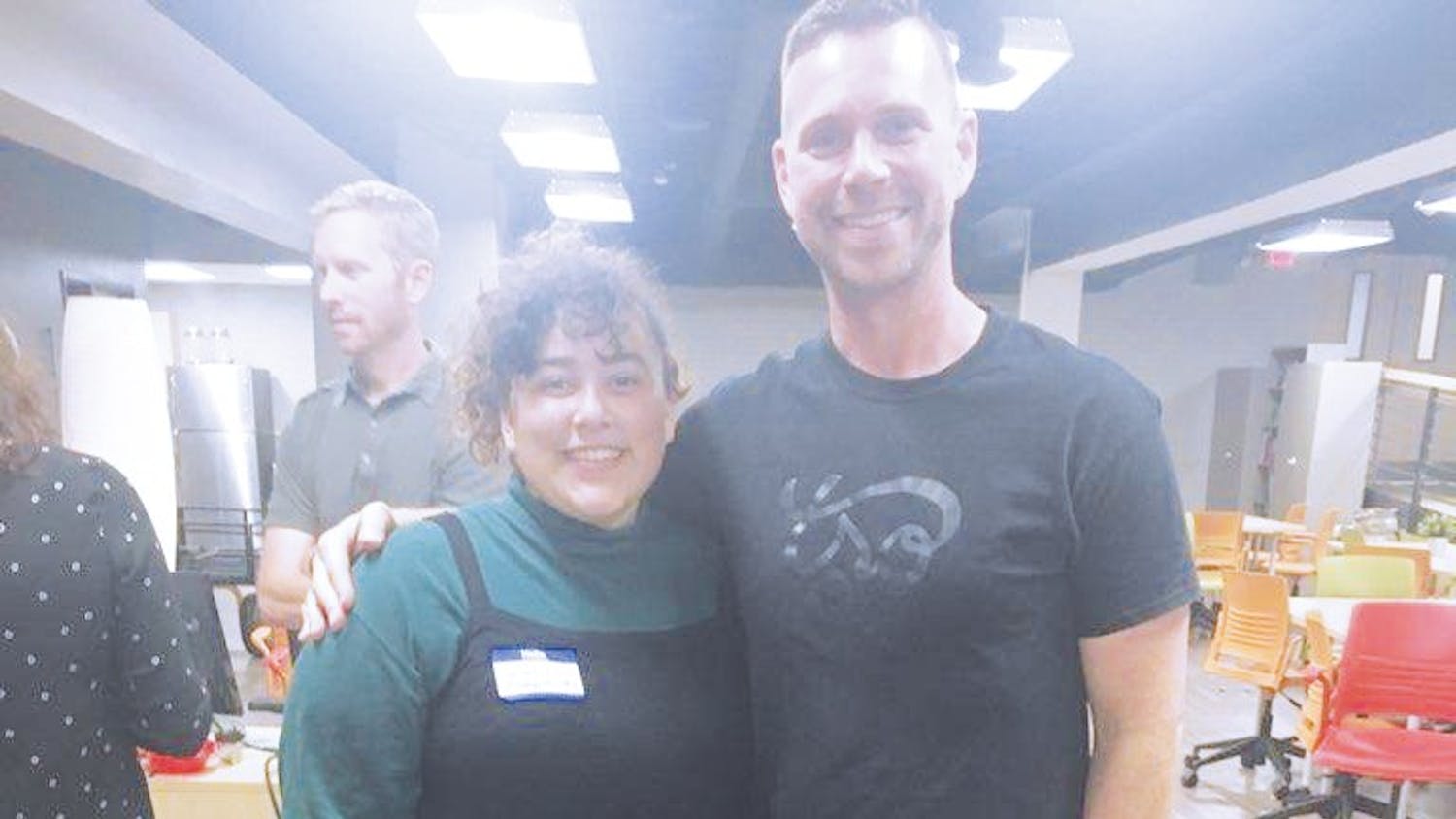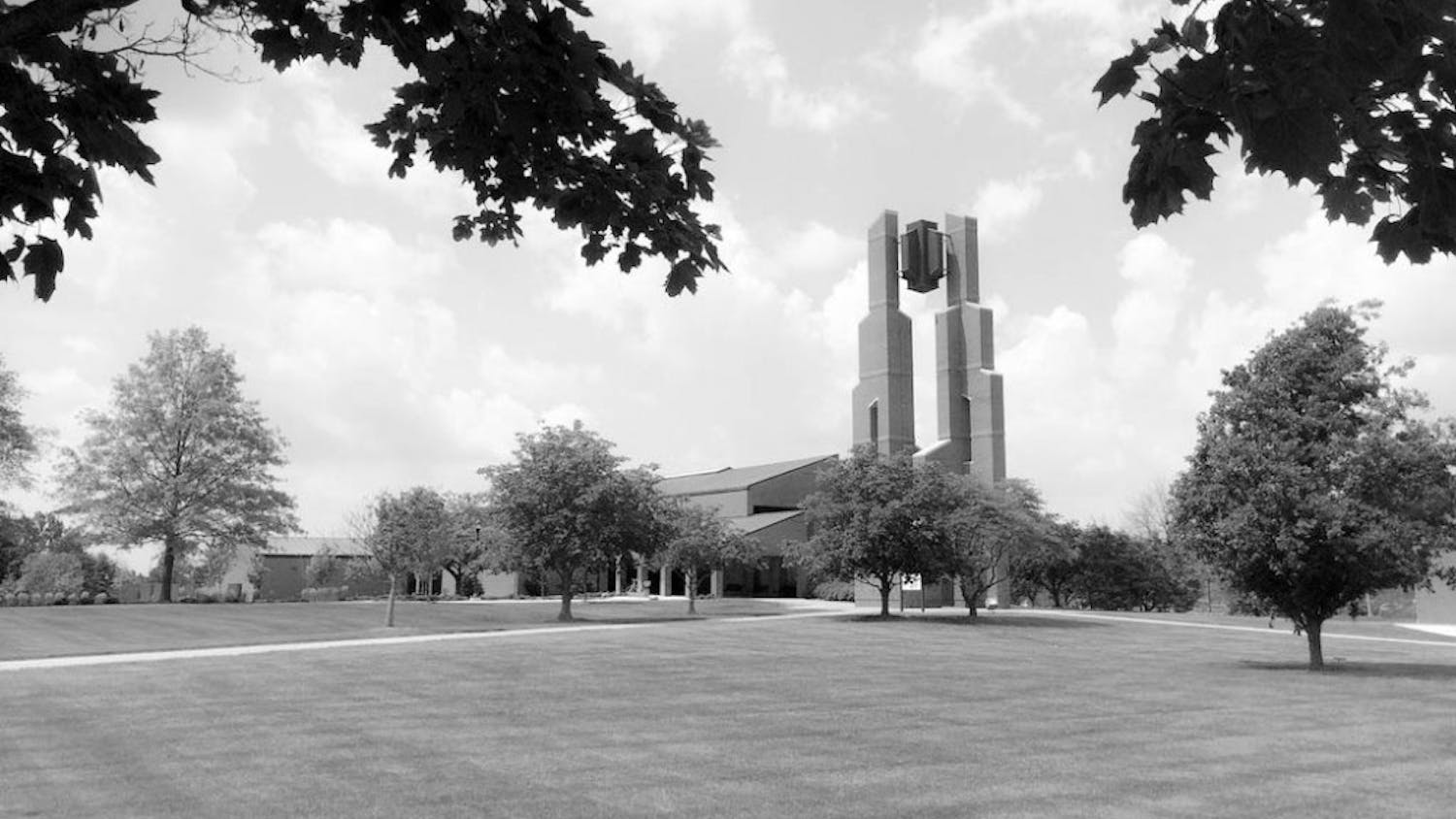“What’s your Enneagram number?”
This is a common question one might overhear in many conversations and introductions circling around Taylor University’s campus. The popular personality model describes a set of nine distinct personality types, each identified with its own corresponding number, one through nine. The Enneagram has recently gained popularity within pop culture and the Christian world over the past decade, so much so that it seems to have a culture all of its own.
“It is such a helpful resource to help us better understand ourselves and better understand others,” Drew Moser, dean of student engagement said.
Moser has just published his second book on the Enneagram, ‘The Enneagram of Discernment: The Way of Vocation, Wisdom, and Practice.’ After working as the director of the Calling and Career Office (CCO) at Taylor for three years, Moser decided to use his passion for vocation and calling and pair it with his passion for the Enneagram to create a book that prompts readers to cultivate discernment through knowledge and understanding of the Enneagram.
Before writing this book, Moser co-wrote his first book with Jess Fankhauser, former Taylor staff member, called ‘Ready or Not: Leaning into Life in Our Twenties.’ With both Fankhauser and Moser working in the CCO at the time, their book focused on using the Enneagram to discern one’s calling and vocation.
Moser shared that as he was in the process of researching and writing for this first book, he was met with the recurring thought that one cannot understand a sense of calling if they do not know who they are. This simple but important truth led him to return to the Enneagram after publishing his first book and dive deeply into what it means to know the Enneagram and understand discernment. His newest book is the product of this research and passion.
‘The Enneagram of Discernment’ tackles nine critical questions about vocation, wisdom and practice. The book is not designed as an introduction to the Enneagram, but instead encourages readers who know the Enneagram to learn what to do with their knowledge, how to deepen it and to not just know their type, but know what to do with it throughout their life.
“Your personality type is the trailhead. It is just the beginning of a lifelong journey of growth and development,” Moser said.
In Enneagram culture, people tend to have a surface level understanding of their type and who they are. Enneagram numbers can often be used as stereotypes or even be used to weaponize others or ourselves. Some people identify so strongly with their number that it becomes who they are.
Many Enneagram teachers have inspired Moser, as was the case with prominent Enneagram teacher Ross Hudson. Moser found Hudson's statement “You have a type, but you are not your type” to be true.
Moser yearns for people to dig deeper than just identifying their type; he wants people to realize that the Enneagram identifies the best and worst of individual personalities.
In 2008, Moser was first introduced to the Enneagram while on staff at a missions organization in Vancouver, British Columbia. For a staff development exercise, they participated in an Enneagram workshop which Moser entered extremely skeptical and unexcited.
Moser’s preconceived notion of the workshop could not have been farther from what was delivered. As he came out of the workshop, he was shocked with how strong of an impression the Enneagram had left on him and the ways that it gave language to things about himself he did not have before. He has been hooked on it ever since.
Through Enneagram mentors, certification in Enneagram teaching and extensive reading and research, Moser has developed a plethora of Enneagram knowledge he now knows and applies to his writing, teaching, job and personal life.
Moser believes that college is the perfect time to read this book.
“These four years are packed with so many important decisions and along this decision making track, college students are also on a track of discovering who they are,” Moser said. “It is really set up well for college students to understand who they are and begin to apply that knowledge in the realm of discernment.”
He also shared the reality that more information does not mean more wisdom. Today’s world where one has untold amounts of information at their fingertips, has not made individuals any more wise. This fact challenges people to cultivate discernment differently.
When one is able to better know themself and how that helps and hinders their decision making, they are able to root themselves in Christ and better cultivate decisions and discernment.





